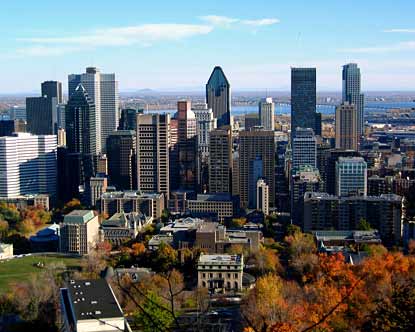Provincial real estate association does not expect any significant movements in the short term, however

Montreal might prove to be a popular destination in the wake of the Ontario government’s implementation of a new 15-per-cent foreign buyers’ tax, according to the Quebec Federation of Real Estate Boards (QFREB).
However, the Board added that it is not expecting any major short-term increases in the proportion of foreign buyers in Montreal, which is currently estimated by the CMHC to be at just 1.5 per cent.
“Although this figure is possibly underestimated, the proportion is nevertheless quite low,” the QFREB said. “In Montreal, the presence of foreign buyers would be limited mainly to certain central neighbourhoods for single-family homes and to the downtown area for condominiums.”
“Activity by foreign buyers in the Montreal area could have an upward impact on property prices in some central neighbourhoods, as this is where they tend to concentrate their purchases,” QFREB market analysis manager Paul Cardinal elaborated. “However, the impact would be limited given that Montreal’s real estate market conditions are very different than those observed recently in Toronto and Vancouver.”
“We are far from a housing shortage, whether it be the resale, new construction or rental markets. In this context, it is difficult to envisage a surge in prices like Toronto,” Cardinal added.
Figures from the QFREB showed that the Montreal Census Metropolitan Area has exhibited relatively sedate housing price increases in the past few years, with the median price of single-family homes growing by 6 per cent between 2013 and 2016, from $279,000 to $295,000. In the same vein, the median price of condo units rose by 6 per cent in the same time frame, from $227,000 to $240,000.
“In addition, conditions in the Montréal real estate market remain relatively balanced: the single-family segment is slightly in favour of sellers, the plex market is balanced, while the condominium segment still shows a slight oversupply,” the QFREB stated.
Related stories:
Montreal exhibits strong residential real estate market performance in Q1 2017
CREA releases latest stats, warns against further housing policy
However, the Board added that it is not expecting any major short-term increases in the proportion of foreign buyers in Montreal, which is currently estimated by the CMHC to be at just 1.5 per cent.
“Although this figure is possibly underestimated, the proportion is nevertheless quite low,” the QFREB said. “In Montreal, the presence of foreign buyers would be limited mainly to certain central neighbourhoods for single-family homes and to the downtown area for condominiums.”
“Activity by foreign buyers in the Montreal area could have an upward impact on property prices in some central neighbourhoods, as this is where they tend to concentrate their purchases,” QFREB market analysis manager Paul Cardinal elaborated. “However, the impact would be limited given that Montreal’s real estate market conditions are very different than those observed recently in Toronto and Vancouver.”
“We are far from a housing shortage, whether it be the resale, new construction or rental markets. In this context, it is difficult to envisage a surge in prices like Toronto,” Cardinal added.
Figures from the QFREB showed that the Montreal Census Metropolitan Area has exhibited relatively sedate housing price increases in the past few years, with the median price of single-family homes growing by 6 per cent between 2013 and 2016, from $279,000 to $295,000. In the same vein, the median price of condo units rose by 6 per cent in the same time frame, from $227,000 to $240,000.
“In addition, conditions in the Montréal real estate market remain relatively balanced: the single-family segment is slightly in favour of sellers, the plex market is balanced, while the condominium segment still shows a slight oversupply,” the QFREB stated.
Related stories:
Montreal exhibits strong residential real estate market performance in Q1 2017
CREA releases latest stats, warns against further housing policy



